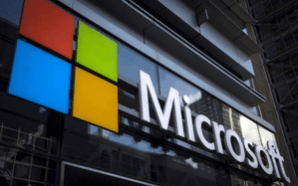
Today, Microsoft is grappling with significant outages affecting its core services, including Outlook, Teams, and Azure, due to a coordinated cyberattack by the hacktivist group Anonymous Sudan. This incident has raised serious concerns about data security and the reliability of digital infrastructure across the globe, impacting millions of users and organizations.
The outages began early today, with users reporting difficulties accessing Microsoft services. Complaints rapidly spread across social media platforms, highlighting the widespread nature of the disruptions. Microsoft confirmed that the outages were caused by Distributed Denial-of-Service (DDoS) attacks, which flood servers with excessive traffic, rendering services unavailable to legitimate users.
Services Affected
- Outlook: Users reported being unable to send or receive emails, leading to communication breakdowns for businesses and individuals alike.
- Teams: Many users faced issues with joining meetings and sending messages, disrupting remote work and collaboration efforts.
- Azure: The cloud service experienced outages that affected businesses relying on Azure for hosting applications and data storage.
The current situation has prompted widespread anxiety among users regarding potential data breaches and the security of their information. Many are concerned that sensitive data may have been compromised during the attack, despite Microsoft stating that there is no evidence of data access or theft at this time. The fear of data loss, especially in a climate where cyberattacks are increasingly common, has left users feeling vulnerable and uncertain.
Background on Anonymous Sudan
Anonymous Sudan has emerged as a significant threat actor in the cyber realm, claiming responsibility for multiple high-profile attacks. The group is motivated by a mix of political and religious beliefs, aiming to retaliate against perceived Western interference in Sudanese affairs. Since its formation, it has conducted over 670 attacks, targeting various sectors, including finance, healthcare, and government infrastructure.

Extent of the Outage
Global Reach: The outages have affected users in numerous countries, including the United States, the United Kingdom, India, and Australia, leading to widespread disruptions in business operations.
Duration of the Outage: While the exact duration is still being assessed, users have reported issues persisting for several hours, with no clear timeline for resolution.
Financial and Operational Impact
The financial ramifications of these outages are substantial. Estimates suggest that the disruption could cost Microsoft millions of dollars in lost revenue and recovery efforts. Businesses relying on Microsoft services face potential revenue losses due to halted operations and decreased productivity. According to the BSI Supply Chain Risk Insights report, the average cost of a ransomware attack is currently set at $4.54 million, and the financial impact of this incident could be similarly severe.
Cybersecurity Context
The incident underscores the increasing frequency and sophistication of cyberattacks targeting major tech companies. The Microsoft Digital Defense Report highlights that cyberattacks have touched 120 countries in the past year, with a significant focus on espionage and data theft. The report indicates that nearly half of these attacks targeted NATO member states, with many aimed at critical infrastructure.
Likely Causes and Vulnerabilities
The attack raises several potential vulnerabilities within Microsoft's infrastructure and the broader cybersecurity landscape:
- Increased Cyber Threats: Cyberattacks are becoming more frequent and sophisticated, with state-sponsored actors increasingly involved in espionage and disruptive attacks.
- Globalization of Cybercrime: The interconnectedness of digital systems makes organizations more susceptible to attacks from various threat actors, including hacktivists and nation-states.
- Inadequate Security Measures: Many organizations still lack robust cybersecurity protocols, making them easy targets for cybercriminals.
Remedies and Strategies for Improvement

To combat the rising tide of cyber threats, organizations must adopt comprehensive cybersecurity strategies:
- Invest in Advanced Security Technologies: Implementing robust security measures, including intrusion detection systems, firewalls, and encryption, is essential to protect sensitive data.
- Enhance Employee Training: Regular training and awareness programs for employees can help mitigate risks associated with phishing attacks and social engineering tactics.
- Establish Incident Response Plans: Organizations should develop and regularly update incident response plans to ensure they can quickly and effectively respond to cyberattacks.
- Utilize Threat Intelligence: Leveraging threat intelligence can help organizations stay ahead of potential attacks and better understand the tactics used by cybercriminals.
- Collaboration and Information Sharing: Organizations should collaborate with industry peers and share information about threats and vulnerabilities to strengthen collective cybersecurity efforts.
The ongoing Microsoft outages due to cyberattacks by Anonymous Sudan serve as a stark reminder of the vulnerabilities inherent in our increasingly digital world. As cyber threats continue to evolve, it is imperative for organizations to prioritize cybersecurity and develop resilient systems capable of withstanding these attacks. The incident underscores the need for robust security measures, employee training, and a proactive approach to cybersecurity to protect critical infrastructure and maintain trust in digital services. Users are advised to stay informed through official Microsoft channels for updates on service restoration and to remain vigilant against potential phishing or other cyber threats that may arise during this period.
Disclaimer: The views expressed in this article are those of the author only
Major General Dr Dilawar Singh is an Indian Army veteran who has led the Indian Army's Financial Management, training and research divisions introducing numerous initiatives therein. He is the Senior Vice President of the Global Economist Forum AO ECOSOC, United Nations and The Co President of the Global Development Bank. He is passionate for advocacy for Fintech incorporation for enhancement of financial transparency, efficiency of finmanagement and societal inclusive banking.












